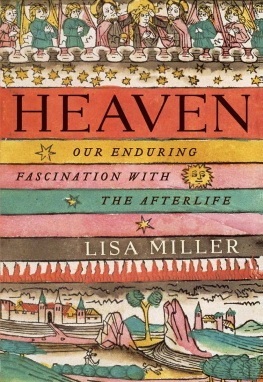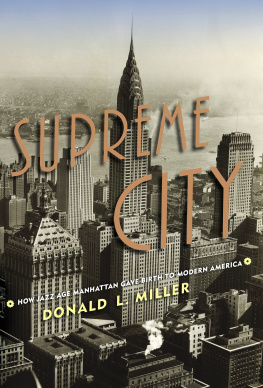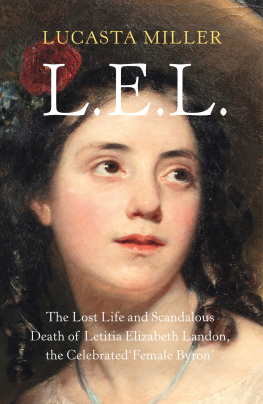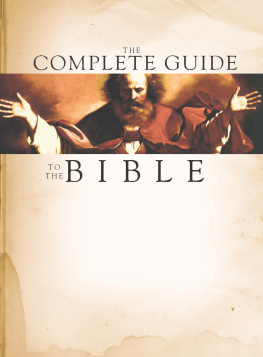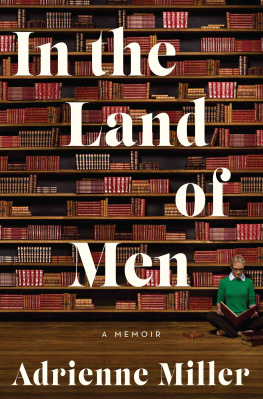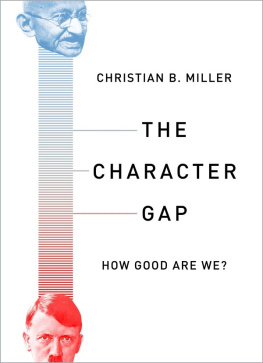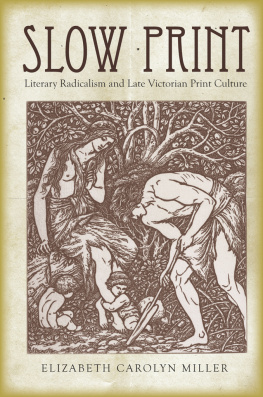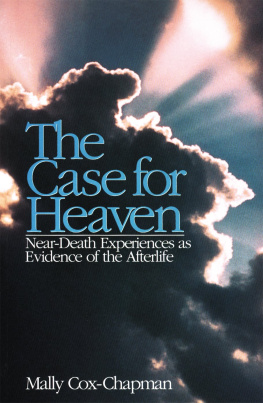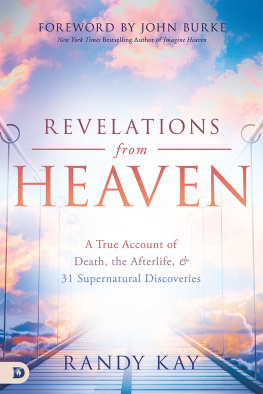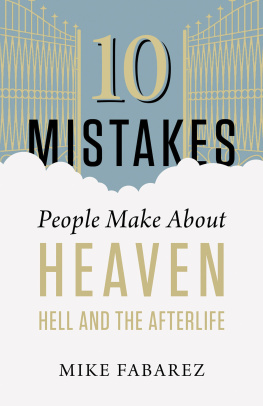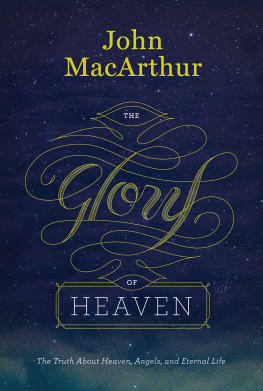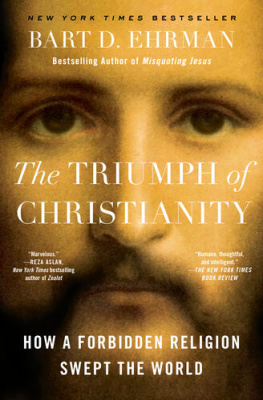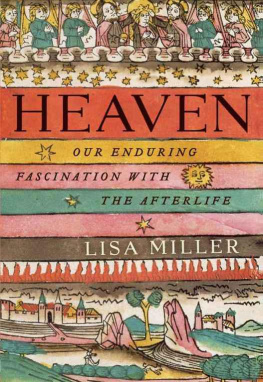S ome years ago, I wrote a cover story for Newsweek magazine called Why We Need Heaven, and the day before its publication I agreed to do a live, early-morning television interview to promote it. In the kind of ugly coincidence we journalists sometimes call lucky, events earlier that day made my story seem prescient. Ten people had been killed and fifty wounded by a Hamas martyr in northern Israel, and as I talked about the role that visions of heaven play in the Mid-east conflictinspiration for the suicide bombers, solace for the victims familiesimages of a mangled bus and men in hazmat suits moved on the screen. I was all business, hitting my talking points. Then, as my three-minute segment was winding down, the anchor asked me a question for which I had no easy answer. I should have seen it coming.
Do you believe in heaven?
I was cornered. I wish you hadnt asked me that. I smiled.
It wasnt graceful, but it was the truth. Unless were running for public office or living on the left or right fringes of society, we Americans are as uncomfortable discussing the specifics of our spiritual lives as we are talking about the honest satisfactions and dissatisfactions of our sex lives. According to polls, most of us say we believe in heavenand God, and miracles, and angelsbut we dont think very hard about what we mean. Talk about heaven at a cocktail partyraise it as a serious topicand watch discomfort flicker across peoples faces. We say the word heaven out loud only when were murmuring the Lords Prayer; when a child asks us about the death of a pet, friend, or grandparent; or when we face death ourselvesour own or that of a loved one. Yet in spite of the pervasive sense that real talk about heaven is somehow silly, nearly all of usme includedcarry visions of heaven around in our heads. These visions have their roots in official doctrine, in creeds chanted and lessons learned at religious school. They also have roots in culture: in paintings and songs, in jokes and movies, and in the stories our parents told us. Our visions of heaven may be based as well on our own transcendent experiencesthose moments in life when we see that the miracle of earthly existence is bigger and more perfect that we can conceive of day to day. How could Ijournalist, religion expert, professional skeptictell a television news anchor that I believe I have seen the ghost of my dead grandfather? Or that I imagined heaven to be something like the heart-bursting feeling of love I had one afternoon five months after my wedding, when my husband, Charlie, and I drove to the beach after a grueling week of work and wound up at a fish shack at the end of a pier, drinking beer and squinting at boats in the sun. Ive replayed that August television interview a thousand times in my head, wishing Id handled it with more finesse. At that moment, before work on this book began in earnest, I would have said something like: The idea of heaven defies logic, but in my mind it represents hope, and I believe in hope.
What are we talking about when we talk about heaven? We Americans inhabit perhaps the most religiously diverse society anywhere on this planet. Pluralism is written into our Constitution, it resides in our bones; even those of us who are devoutly committed to one faith regard our neighbors rights to practice another one as sacrosanct. When he was running for president in 1960, John F. Kennedy defended his Roman Catholic faith against accusations that he was a papist. To assault someones religionCatholic, Quaker, or Jewwas un-American, he said: Religious liberty is so indivisible that an act against one church is treated as an act against all. Nearly 80 percent of Americans tell pollsters theyre Christian, but the uniformity stops there. Americans are liberal Protestants and conservative Protestants; theyre Roman Catholic and Eastern Orthodox. (Definitions and labels, such as they are, hold only so much meaning. Write a story about Mormons calling them Christian, and get an in-box full of e-mail from evangelicals explaining why Mormons are not Christian; write a story that distinguishes Mormons from other Christians, and your in-box is full of mail from Mormons, explaining just how Christian they are.) Americans are also non-Christian. Thanks to waves of immigration over the past 150 years from Eastern Europe, Asia, Southeast Asia, the Middle East, the West Indies, and Africa, theyre also Jewish, Muslim, Hindu, Buddhist, Bahai, Zoroastrian, Santera, Jain, pagan, Wiccan, New Age, atheist, agnostic, secular, and lapsed. In America, all these religious sects live peaceablyfor the most parttogether.
The right to freedom of religious expression given to us by the founders protected at first a kind of parochial pluralism among Protestants, from the rational skepticism of Thomas Jefferson to the dour piety of John Adams. But the number of religions expressed in America has exploded over the past two centuries, and Americans constitutional openness to other peoples beliefs means that religious experimentationtrying on certain beliefs, discarding those that dont satisfyis now widespread. According to a 2007 poll by the Pew Forum on Religion and Public Life, 28 percent of Americans practice a religion different from the one they grew up with (and if you include people who move from one Protestant denomination to another, that number is 44 percent). Also according to Pew, 65 percent of Americans believe that many different religious paths can lead to eternal salvation.
As long ago as 1831, Alexis de Tocqueville complained about what he saw as the superficiality of American religious practice. Americans, he noted, follow a religion the way our fathers took a medicine in the month of Mayif it does not do any good, people seem to say, at least it cannot do any harm. This widespread erosion of orthodoxybe-moaned by everyone from the Dalai Lama to Pope Benedict XVIhas been hastened by the rise of virtual spiritual worlds, where people have easy access to religions other than their own, says Rodger Kamenetz, author of The Jew in the Lotus . Many spiritually minded Americans now feel perfectly comfortable embracing more than one religious tradition at once. Thus the Mennonite who marries a Jew and attends a progressive Episcopal church, or the Christian married to the Sikh who sends her child to an Islamic preschool. Were no longer living in an Episcopal neighborhood or a Jewish neighborhood, Kamenetz told me once. Its easy to look over the fence and see what the other folks are doing.
In much of Western Europe, Christianity is on the wanethe great medieval cathedrals stand empty except for touristsand a kind of serious secularism has taken its place. In France, Belgium, the Netherlands, and the Czech Republic, about a third of people say theyre atheists. America is different. We retain our religiositymore than 90 percent of Americans say they believe in God, a percentage that has not moved significantly in sixty yearsbut the nature of that religiosity changes with the times. Denominations grow and diminish while other spiritual movements rise up to fill the empty places. In America, Episcopalians, Methodists, and Baptists are losing adherents, while nondenominational churches, Pentecostals, Buddhists, and people who say they belong to no religion in particular are gaining. Surveys such as the one by Pew are helpful but not all-encompassing, for they do not include popular but unconventional spiritual practices (yoga, 12-step programs, Scientology) and do not account for such phenomena as the five million people who purchased The Secret , the 2006 best seller advocating the power of positive thinking.
Such diversity presents a problem for heaven, an ideaor reality, depending on your viewthat has never been characterized by conceptual consensus or clarity. Even the Bible provides no single, coherent view of the afterlife. Scholars, theologians, writers, rabbis, and poets have argued over heavenwhere it is, what it looks like, who gets to goever since people started talking about it, at times and in places where the practice of religion was far more uniform than it is today. So when 81 percent of Americans tell pollsters that they believe in heaven, up from 72 percent ten years earlier, its hard to know exactly what they meanbeyond an automatic and understandable hope for something after death besides the terrifying end of everything. I once dated an evangelical Christian who told me late one night in a bar over bourbon that he believed that in heaven he would see the baby Jesus. I was incredulous. Why the baby Jesus? I asked. Why not Jesus at the age of his death? Why not Jesus as a lamb, or as a king, or as a heroic warrior? My date insisted: in heaven the Christian Lord would be an infant.

